108 Military Central Hospital continues to make its mark in the medical field by supporting 103 Military Hospital in performing a multi-organ transplant from a brain-dead donor.
Medical news November 29: Medical cooperation opens up hope for organ transplant recipients
108 Military Central Hospital continues to make its mark in the medical field by supporting 103 Military Hospital in performing a multi-organ transplant from a brain-dead donor.
108 Military Central Hospital supports 103 Military Hospital in performing multiple organ retrieval and transplantation
Central Military Hospital 108 supported Military Hospital 103 to organize the retrieval of 7 organ tissues including heart, liver, lungs, 2 kidneys, 2 corneas from brain-dead donors, and at the same time transferred liver transplant techniques to Military Hospital 103.
This is also the third time that 108 Military Central Hospital has supported 103 Military Hospital under the liver transplant technology transfer contract in 2024.
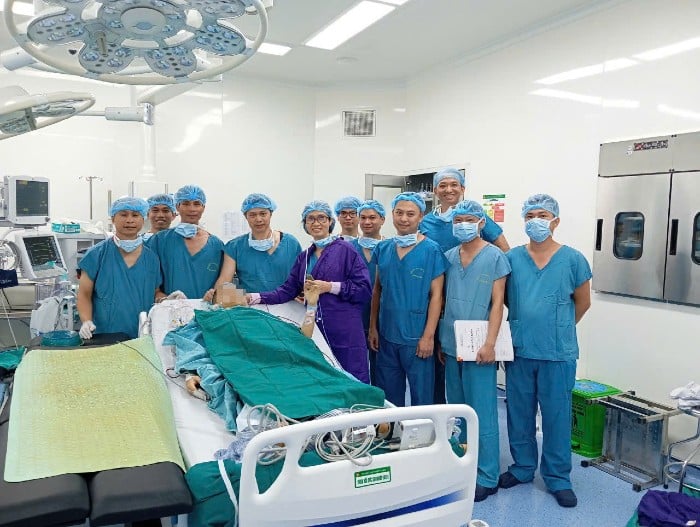 |
| Doctors perform multi-organ transplant. |
Previously, Military Hospital 103 received a 20-year-old male patient, in a deep coma due to severe traumatic brain injury on the 5th day.
After the medical team’s efforts to save the patient, the patient was diagnosed as brain dead. With a compassionate heart, the family representative agreed to donate the victim’s tissues and organs to save the lives of many other patients with serious illnesses.
Upon receiving the information, on the afternoon of November 27, 2024, 108 Military Central Hospital immediately sent experts to hold an online consultation with 103 Military Hospital to develop a plan for multi-tissue and organ transplantation that is safe, rigorous, scientific , and in compliance with professional regulations.
After more than 1 hour of consultation, the expert team from the 108 Military Central Hospital rushed to the 103 Military Hospital. And in this multi-organ transplant, the 108 Military Central Hospital provided human resources and medical equipment.
108 Military Central Hospital supported the removal of heart, lungs, liver, 2 kidneys and 2 corneas from brain-dead donors, and participated in transferring direct liver transplant techniques and supporting post-operative resuscitation at 103 Military Hospital.
After multiple organ transplants, the recipients are progressing well. For liver transplants, the patient is awake, has his endotracheal tube removed, and can speak normally immediately after surgery.
This is the third liver transplant supported by 108 Military Central Hospital in the liver transplant technology transfer contract with 103 Military Hospital signed in early 2024.
The first transplant supported by 108 Military Central Hospital was a transplant from a living donor, which took place on July 4, 2024. The successful liver transplant was the result of a transfer process and timely, smooth coordination between the two hospitals.
108 Central Military Hospital has been making great contributions to the development of tissue and organ transplantation in Vietnam.
With more than 70 years of growth and development, 108 Central Military Hospital has continuously promoted the application of many new techniques, always maintaining its position as one of the leading centers in research and application of many advanced techniques.
In 2024, the Hospital signed a contract to transfer liver transplant techniques to 4 medical facilities. During the signing ceremony to transfer liver transplant techniques to Hue Central Hospital last November, Major General, Professor, Dr. Le Huu Song, 108 Military Central Hospital, said that the Hospital considers the transfer of techniques to hospitals as a responsibility and a desire of the staff of 108 Military Central Hospital to share with their colleagues.
To date, 108 Central Military Hospital has performed nearly 250 liver transplants, nearly 500 kidney transplants, 2 heart transplants, 4 lung transplants and 4 limb transplants.
The hospital has become the number 1 liver transplant center in Vietnam and Southeast Asia. With 50 transplants per year, striving to reach 100 cases per year in the coming period, it shows the level, experience and liver transplant capacity of 108 Military Central Hospital reaching international standards.
Vietnam masters new techniques in treating blood cancers and hematological diseases
According to Associate Professor, Dr. Nguyen Ha Thanh, Director of the Central Institute of Hematology and Blood Transfusion, in recent times, the Hematology and Blood Transfusion department has approached regional and international standards in applying new techniques and methods in diagnosing and treating hematological diseases as well as in ensuring blood transfusion safety.
Regarding the achievements of the field of hematology, according to Mr. Do Trung Hung, Director of the Legal Department (Ministry of Health), in recent years, the Vietnamese health sector has made remarkable progress in both quality and quantity, with significant contributions from the Hematology - Blood Transfusion specialty.
Many studies, advances in science and technology have been applied in treatment. Basically, Vietnam has mastered techniques related to stem cells, new techniques in the treatment of blood cancer and hematological diseases. Blood transfusion has made breakthroughs in the stages of mobilizing blood donations, building blood donor sources, coordinating and ensuring blood transfusion safety.
It is known that the scientific program of the conference includes 121 reports in all fields of Hematology - Blood Transfusion.
In which, 5 international experts will present 6 reports updating knowledge on issues: Stem cell transplantation from extracorporeal umbilical cord blood, targeted therapy, thrombosis and bleeding complications related to pacemaker implantation and cerebrovascular intervention...
The reports and scientific works reflect the elaborate research process and the continuous efforts of the Hematology - Blood Transfusion industry in professional development and application of advances in world medicine.
The field of hematopoietic stem cell transplantation continues to evolve with the implementation of many complex transplantation techniques, from many different stem cell sources.
The Central Institute of Hematology and Blood Transfusion alone has successfully performed 660 transplants and successfully transferred autologous stem cell transplant techniques to a number of hospitals, helping many patients access this modern treatment method.
Along with that, the field of genetics - molecular biology has also achieved positive results in studying gene mutations in blood diseases; contributing to improving the quality of treatment of hematological diseases and prenatal diagnosis of genetic blood diseases. Activities to prevent congenital hemolytic anemia, a genetic disease with 13.8% of the population carrying the disease gene, have also been promoted in many localities.
In addition, the blood transfusion sector has ensured a safe and quality blood source for treatment; the rate of voluntary blood donations has reached over 97%.
Within the framework of the Conference, there were also 6 satellite seminars and a medical exhibition specializing in Hematology - Blood Transfusion with 32 exhibition booths, helping medical staff update new advances in equipment, supplies, drugs, chemicals, biological products, etc. to serve professional activities.
Robotic surgery - a new step forward in the treatment of chest diseases
The field of Thoracic Surgery is entering a new era where robotic arms replace surgeons holding scalpels, thereby reducing the risk of complications and helping patients recover faster.
Robot-assisted thoracic surgery was first introduced in 2002 and has become increasingly popular worldwide. If in the period 2018 - 2022, there were only 1-2 million cases each year, in 2023, this number exceeded 2.2 million, and from the beginning of 2024 until now, there have been more than 2.6 million cases treated with this method.
In Vietnam, from 2017 to now, there have been more than 3,600 robotic surgeries, of which 16% are surgeries to treat thoracic diseases. This number proves that Vietnam has gradually approached advanced medicine, making robotic surgery one of the top choices in surgical intervention.
Surgery is very important for thoracic diseases such as lung cancer, mediastinal tumors, diaphragmatic hernia, etc. Before robots were invented, there were two main surgical methods: open surgery and laparoscopic surgery.
While open surgery requires a long incision, increasing the risk of infection, bleeding, and slow recovery, laparoscopic surgery has overcome almost all of these disadvantages. Although the complication rate is lower than open surgery, laparoscopic surgery still has the risk of causing damage to nearby organs or difficulty in operating in some deep and narrow locations.
With high flexibility and precision, robotic surgery has overcome the limitations of traditional laparoscopic surgery.
Experts all confirm that robotic surgery is a modern surgical method with many outstanding advantages: complete tumor removal increases treatment effectiveness, patients experience less pain, less blood loss, quick recovery helps shorten hospital stay, and ensures aesthetics. Therefore, this method is increasingly used in developed countries.
At some hospitals including K Hospital and Tam Anh General Hospital in Ho Chi Minh City, the latest generation of da Vinci Xi robotic endoscopic surgery system has been put into use.
The outstanding advantages of robotic laparoscopic surgery are reduced pain, small wounds and patients can return to normal life just 1-3 days after surgery.
The da Vinci Xi surgical robot is designed to not move the pivot point in the rib area. Therefore, patients experience less pain and tissue irritation after surgery than with traditional laparoscopic surgery.
In addition, the use of surgical robots also helps reduce complications and post-operative accidents at a higher rate than laparoscopic surgery using other techniques. The rate of recurrence and re-hospitalization is also significantly reduced.
In addition to many outstanding advantages, robotic laparoscopic surgery still has some potential challenges: the laparoscopic surgical space is often narrow, affecting the surgeon's vision and ability to operate; the surgeon has a reduced ability to directly feel the scalpel, making it difficult to determine the exact anatomy; laparoscopic instruments require specialized operating skills to achieve optimal efficiency; requiring close coordination between members of the surgical team.
Therefore, for the surgery to be successful, the surgeon needs to be professionally trained, proficient in operating the robotic arm, and quick in handling situations that arise during the surgery.
Source: https://baodautu.vn/tin-moi-y-te-ngay-2911-hop-tac-y-te-mo-ra-hy-vong-cho-nguoi-ghep-tang-d231273.html


![[Photo] General Secretary To Lam receives the Director of the Academy of Public Administration and National Economy under the President of the Russian Federation](/_next/image?url=https%3A%2F%2Fvphoto.vietnam.vn%2Fthumb%2F1200x675%2Fvietnam%2Fresource%2FIMAGE%2F2025%2F12%2F08%2F1765200203892_a1-bnd-0933-4198-jpg.webp&w=3840&q=75)





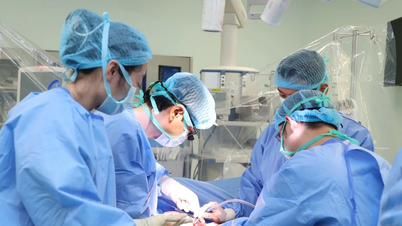

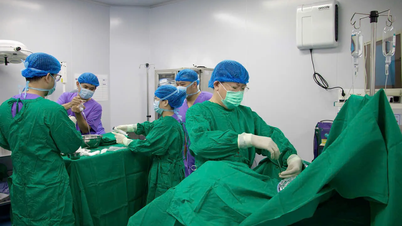

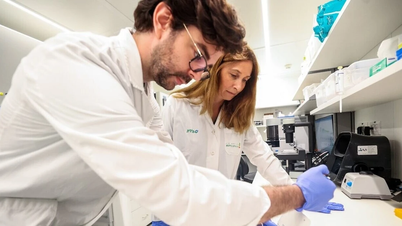

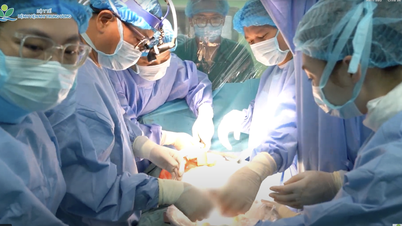


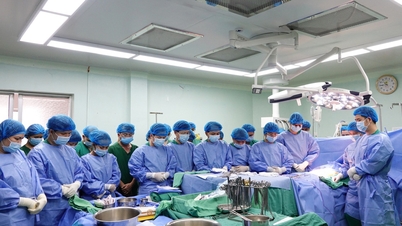

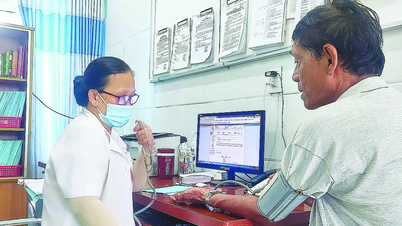



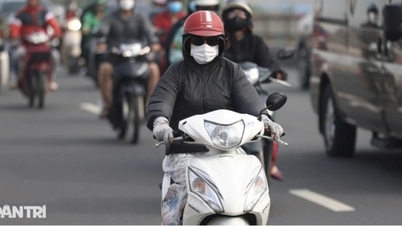













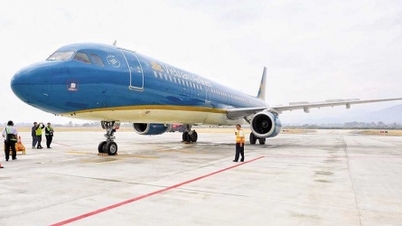
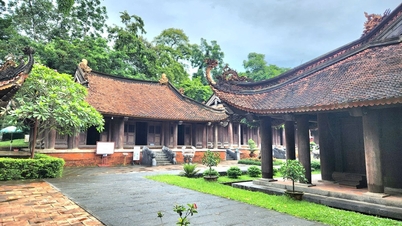









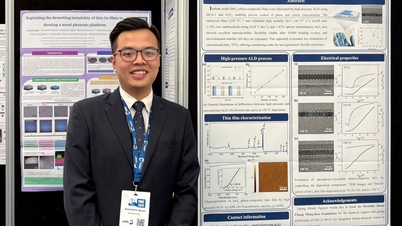









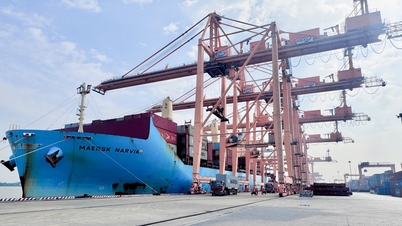



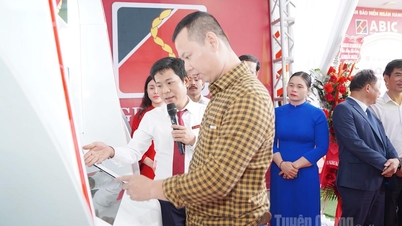

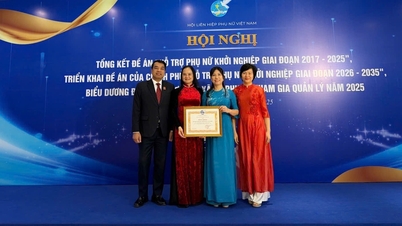
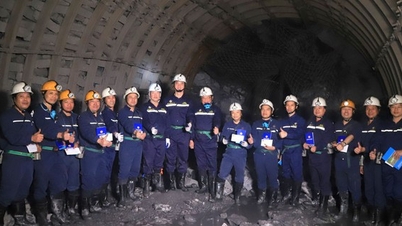








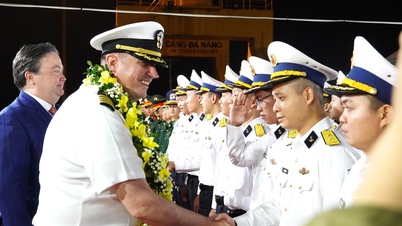



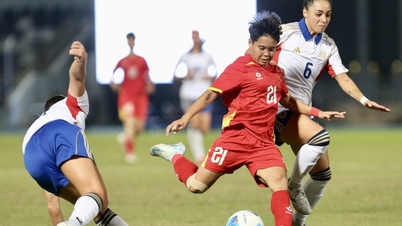

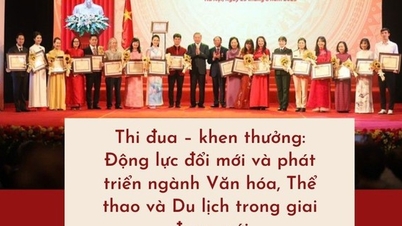



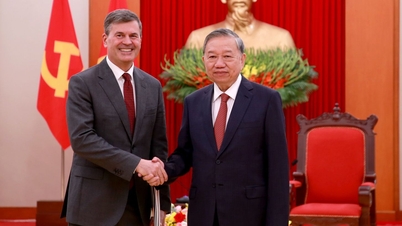




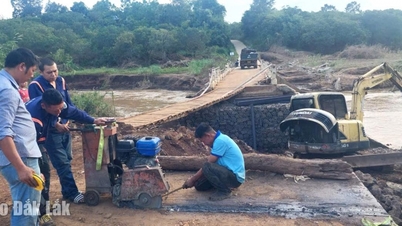


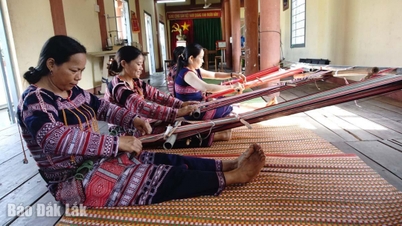


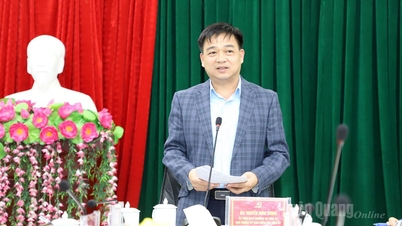




















Comment (0)